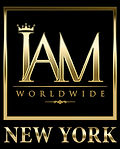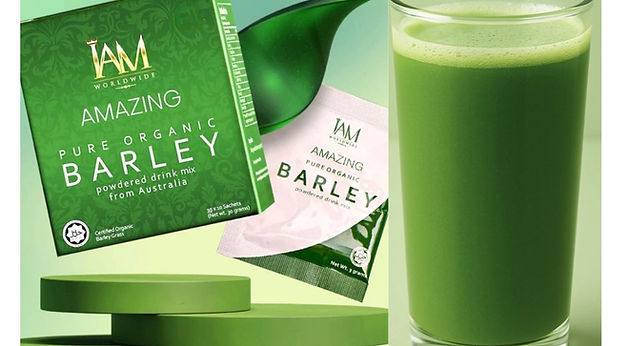Practical Lifestyle Changes to Support Heart Health and Hypertension Solutions
- Aileen Fernando
- Jul 23, 2025
- 3 min read
Heart health is a vital aspect of overall well-being, and making simple lifestyle changes can significantly impact your cardiovascular system. With the rising prevalence of hypertension, it's crucial to identify practical solutions that support heart health. In this blog post, we'll explore effective strategies to manage your blood pressure and maintain a healthy heart.
Hypertension Solutions
Hypertension, or high blood pressure, affects millions of people worldwide. The good news is that you can take practical steps to lower your blood pressure and improve your heart health. Here are some actionable recommendations to get you started:
Eat a Heart-Healthy Diet
Incorporating more fruits, vegetables, whole grains, and lean proteins into your meals can significantly benefit your heart health. The DASH (Dietary Approaches to Stop Hypertension) diet specifically emphasizes these food groups. Studies show that people who followed the DASH diet reduced their blood pressure levels effectively.

A colorful heart-healthy meal filled with fruits and vegetables. Limit Salt Intake
Reducing your sodium intake is essential for lowering blood pressure. Aim for less than 2,300 mg of sodium per day, and ideally, target 1,500 mg if you have hypertension. Use herbs and spices to season your meals instead of salt.

A variety of spices and herbs for seasoning meals without salt. Stay Active
Regular physical activity can help you maintain a healthy weight and lower your blood pressure. Aim for at least 150 minutes of moderate aerobic activity each week. Activities can include brisk walking, swimming, or cycling. Find what you enjoy, and it will be easier to stay committed.
What is the Danger Zone for Blood Pressure?
Understanding blood pressure readings is crucial for identifying your risk of hypertension. Blood pressure is measured in millimeters of mercury (mmHg) and is recorded as two numbers: systolic (top number) and diastolic (bottom number).
Normal blood pressure is typically around 120/80 mmHg.
Elevated blood pressure lies between 120-129 systolic and below 80 diastolic.
Hypertension stage 1 is between 130-139 systolic or 80-89 diastolic.
Hypertension stage 2 is 140 or higher systolic or 90 or higher diastolic.
If your blood pressure exceeds 180/120 mmHg, this is considered a hypertensive crisis, and you should seek immediate medical attention.
Manage Weight Effectively
Maintaining a healthy weight is closely linked to heart health. Carrying excess weight can strain your heart and contribute to hypertension. Find a sustainable weight management plan that includes balanced eating and regular exercise.
Set Realistic Goals
Aim for a gradual weight loss of 1-2 pounds per week. This approach is more sustainable and manageable. Use a food diary to track your intake and identify areas for improvement.
Stay Hydrated
Drinking enough water throughout the day can help control hunger and prevent overeating. Additionally, proper hydration supports overall bodily functions. Aim to drink at least 8-10 glasses of water daily.
Reduce Stress Levels
Stress can have a significant impact on your heart health. Chronic stress can lead to poor lifestyle choices, like unhealthy eating and lack of exercise. Here are some strategies to help you manage stress:
Practice Mindfulness
Engage in mindfulness activities such as meditation, yoga, or deep-breathing exercises. These practices can help you stay grounded and calm, reducing stress levels.
Connect with Others
Building strong social connections can be beneficial for emotional well-being. Spend time with friends and family or join community groups that share similar interests. This support network can help you cope with life's challenges.
Take Time for Hobbies
Engaging in hobbies that bring you joy can be an excellent way to relieve stress. Whether it’s painting, gardening, or reading, make sure to carve out time for activities that enrich your life.
Get Regular Check-ups
Regular check-ups are essential for maintaining heart health. Schedule visits with your healthcare provider to monitor your blood pressure, cholesterol levels, and overall cardiovascular health. Early detection of any issues allows for timely intervention and effective management.
If you're struggling with hypertension, consider reaching out to professionals who specialize in managing high blood pressure. You can find valuable resources and information by visiting managing high blood pressure.
Final Thoughts
Taking practical lifestyle steps to support heart health doesn't have to be overwhelming. Small, consistent changes can make a significant difference in lowering blood pressure and improving overall cardiovascular health. By focusing on a balanced diet, regular physical activity, stress management, and routine health check-ups, you can pave the way for a healthier heart and a more fulfilling life.

Remember, it's never too late to make positive changes. Start today and take control of your heart health for a brighter tomorrow.






Comments